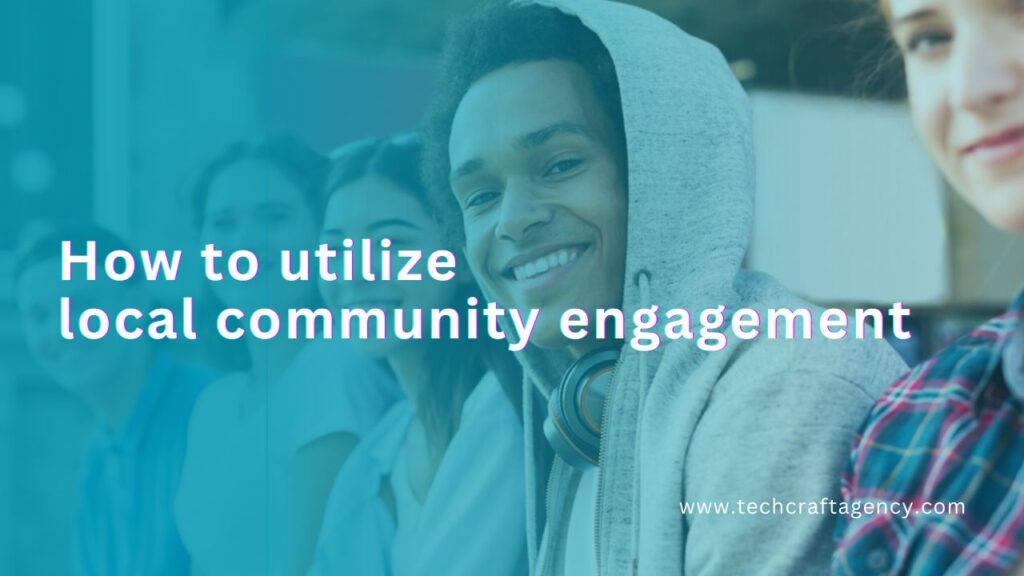A thriving community is based on the collective spirit of its members. Local community engagement entails more than just living in the same neighbourhood; it also entails building relationships, empowering residents, and collaborating to make the world a better place for everyone. But how do you properly realise this potential? This post discusses critical tactics for leveraging local community engagement and reaping its myriad advantages. that’s why you need to know How to utilize local community engagement.
Understanding the Benefits:
Before diving in, let’s acknowledge the power of community engagement. It fosters a sense of belonging and ownership, leading to a more invested and resilient community. Here are some key benefits:
- Informed Decisions: By engaging residents, you gain valuable insights and perspectives that can shape better decisions on local issues.
- Increased Trust: Open communication builds trust between residents and authorities, leading to more collaborative problem-solving.
- Enhanced Ownership: When residents feel heard and involved, they’re more likely to take ownership of solutions and initiatives.
- Improved Outcomes: Collaborative efforts often lead to more effective and sustainable solutions for local challenges.

Strategies for Effective Engagement:
Now, let’s explore practical strategies to put these benefits into action:
-
Identify Your Goals:
Clearly define what you want to achieve through engagement. Are you seeking feedback on a new park project, or aiming to revitalize a neighborhood? -
Know Your Audience:
Every community is unique. Consider demographics, communication preferences, and accessibility needs to ensure inclusive participation. -
Diversify Your Engagement Channels:
Don’t rely on a one-size-fits-all approach. Offer a variety of ways for people to participate: * Traditional methods: Public meetings, town halls, and neighbourhood forums remain valuable for face-to-face interaction. * Online engagement: Utilize surveys, polls, online discussions, and social media platforms to reach a broader audience. * Creative approaches: Host community events, workshops, or idea-generation contests to spark excitement. -
Accessibility is Key:
Ensure your engagement methods are accessible to everyone. Offer translated materials, and childcare options for meetings, and consider online alternatives for those with mobility limitations. -
Transparency and Feedback:
Be transparent about how community input will be used. Provide regular updates and feedback on how their participation is making a difference. -
Building Trust and Relationships:
Community engagement is an ongoing process, not a one-time event. Foster trust by actively listening to residents, addressing concerns, and demonstrating a commitment to collaborative action. -
Empowering Action:
Don’t just collect input, empower residents to take action. Create volunteer opportunities, mentorship programs, or citizen advisory committees to translate ideas into tangible outcomes.
Frequently Asked Questions
Question 1: Why is local community engagement important for businesses and organizations?
Answer 1: Local community engagement builds trust, enhances brand loyalty, provides valuable insights, and fosters collaboration with other stakeholders.
Question 2: How can businesses measure the success of their community engagement efforts?
Answer 2: Success can be measured through metrics like event attendance, volunteer participation, feedback, customer loyalty, brand sentiment, and social media engagement.
Question 3: What are some common challenges businesses face when engaging with local communities, and how can they overcome them?
Answer: Challenges include scepticism, diverse community interests, and resource constraints. Overcoming them requires authenticity, listening to feedback, adapting strategies, and prioritizing initiatives aligned with core values and objectives.
Conclusion:
Local community engagement is an effective method for fostering a stronger, more dynamic community. By implementing these tactics, you may maximise its potential and harness the collective energy of your community. Remember that a thriving community is one in which everyone feels appreciated, heard, and encouraged to contribute. Take the initiative, open the lines of communication, and watch your community develop!

